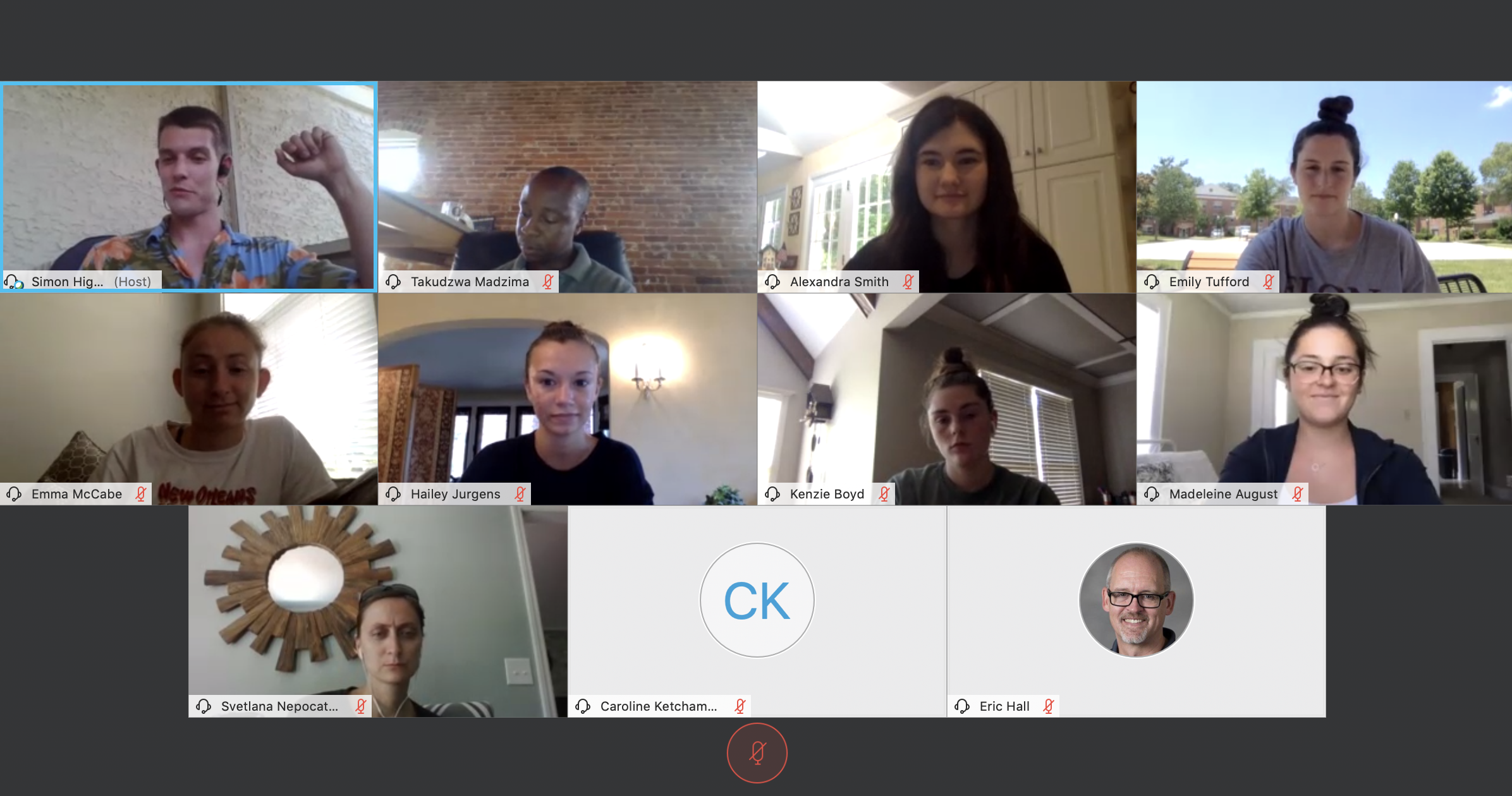Student participants in Elon’s Summer Undergraduate Research Experience (SURE) program are pursuing their research topics virtually, as the university continues to take precautions against the spread of COVID-19.
Elon’s Summer Undergraduate Research Experience (SURE) is taking on an altered form this summer, as students and their faculty mentors look to safely conduct research during a global pandemic.
The 37 students participating in SURE 2020 are continuing to pursue their research topics virtually, connecting regularly through WebEx meetings and emails. Typically, the group of participants gathers three times over the summer to discuss the progress of their research. While those face-to-face meetings are not possible this summer, students and faculty are still excited for the opportunity to connect and continue their research online.
“The faculty mentors and their students are grateful to the university for continuing to support the summer program,” said Professor of Psychology and Director of Undergraduate Research Meredith Allison. “Everyone has been great at responding to these changing circumstances.”
 Students and faculty participated in a virtual SURE Mid-Point Check-In on June 22. Groups of students and faculty gathered in virtual WebEx rooms to discuss each students work to this point. The sessions allowed students to share their research methods, limitations and results and receive feedback from other students and faculty in the session.
Students and faculty participated in a virtual SURE Mid-Point Check-In on June 22. Groups of students and faculty gathered in virtual WebEx rooms to discuss each students work to this point. The sessions allowed students to share their research methods, limitations and results and receive feedback from other students and faculty in the session.
The Check-In served as preparation for the virtual SURE Poster Session, planned for July 22, in which students will present their summer work in virtual sessions to members of the Elon community. Biology major Ryan Wagner ’21 is preparing a presentation on his topic, “The effects of E-cigarette stimulants on zebrafish behavior and kinetics,” with faculty mentor Assistant Professor of Biology Eric Bauer. Wagner says the Check-In and virtual meetings with his mentor have helped make this summer research experience meaningful, despite the challenges presented by the pandemic.
“COVID-19 has posed many obstacles in people’s lives,” Wagner said. “Interacting with Dr. Bauer on a regular basis has been one way I have been able to maintain regularity during times that require physical distancing.”
SURE is meant to enhance learning opportunities for students while encouraging collaboration in learning and research between faculty and students. The program awards participating students and faculty stipends while they work full-time during the eight-week summer intensive to conduct their research.
Alexandra Smith ’21 is working with Assistant Professor of Exercise Science Simon Higgins on her project “The behavioral determinants of metabolic syndrome risk factor development during the college transition.” Smith says the opportunity to continue her work this summer – even if virtually – has been a rewarding experience.
“Conducting research during this period has been difficult, as I have been challenged to reframe my project under new physical distancing guidelines,” Smith said. “Nonetheless, the continuous support and guidance I receive from both my mentor, Dr. Higgins, and the Exercise Science Department as a whole has allowed me to continue to pursue my research project.”
Smith and other EXSS students participating in SURE this summer have gathered for regular virtual meetings to discuss each participant’s progress. Higgins, who moderated one of the Mid-Point Check-In sessions, says these meetings are important to students because of the highly relational aspects of their research. He says the ability to transition to a virtual SURE experience was imperative to students and faculty.
“Elon’s research experience puts the mentor-mentee relationship at the center, and regardless of the type or topic of research, you cannot have this type of intensive mentorship without continued connection between students and faculty,” Higgins said.
While presenting its fair share of challenges, the virtual nature of this year’s SURE program has also produced positive results. It has allowed students to find new ways to dive into their research and take a more in-depth look into the literature surrounding their work, says Associate Professor of Biology Jen Uno, who moderated a Check-In group and serves a faculty mentor.
“I think the connection that has developed between faculty mentors and their research students is an example of Elon at its best,” Uno said. “It represents how we interact with students, engage, challenge and teach in the best way possible. I personally think it has been good at forcing us all to look at alternative methods and find other ways we can answer our research questions.”
SURE is open to students who have completed their first year at Elon and have a cumulative and in-major GPA of at least 3.0. For more information about future SURE experiences, visit the Summer Undergraduate Research Experience website.



